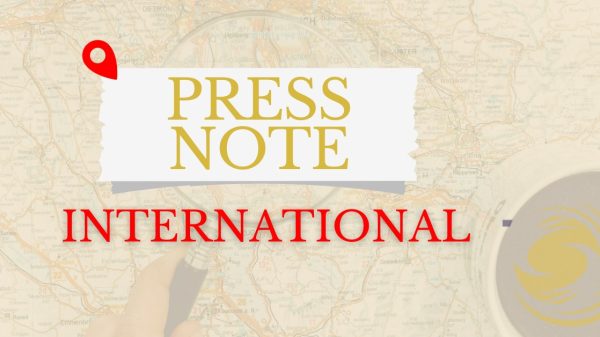Humans to Hit Critical Climate Threshold by 2028, Study Says

Xi and Putin Present United Front Over Israel-Iran Crisis in Veiled Message to Trump
CNN,
China and Russia are aligning themselves as advocates for de-escalation in the Middle East, presenting a contrast to the United States’ potential involvement in the ongoing Israel-Iran conflict. During a phone call, Xi Jinping and Vladimir Putin condemned Israel’s actions, labeling them a violation of the UN Charter and international norms, while also urging all parties, especially Israel, to cease fire. Xi, in a veiled message to President Trump, called for “major powers” to help cool the situation, rather than exacerbate it. Chinese experts have linked the current escalation to what they see as the unpredictable and transactional nature of Trump’s second-term Middle East policy, which, according to them, has eroded US credibility and leadership in the region. Beijing has positioned itself as a peace broker, offering to mediate in the Israel-Iran dispute, while simultaneously strengthening strategic ties with Iran through trade and multilateral platforms such as BRICS and the Shanghai Cooperation Organization. Despite these diplomatic efforts, the impact of China’s mediation remains uncertain, especially given its limited experience in managing such complex conflicts. Nonetheless, in the context of increased scrutiny of US global leadership, Beijing’s calls for restraint may enhance its standing among countries in the Global South.
Russia’s Economy Minister Warns of Looming Recession
The Moscow Times,
Russia’s Economy Minister, Maxim Reshetnikov, warned that the country is on the “brink of recession” during the annual St. Petersburg International Economic Forum. He pointed to weakening business sentiment and slowing growth, with GDP expanding only 1.4% year-on-year in the first quarter of 2025—the slowest rate in two years. Reshetnikov attributed the downturn to the unsustainable, war-driven economic growth that followed Russia’s invasion of Ukraine in 2022. He urged the Central Bank, which recently reduced its key interest rate from 21% to 20% after a prolonged period of high rates, to support the economy more actively. Persistent inflation, fueled by high state spending and labor shortages, remains well above the Central Bank’s 4% target, though it dipped below 10% in May. Reshetnikov’s remarks reflect growing concerns about the fragility of Russia’s economic recovery and underline the challenges posed by ongoing international sanctions and structural weaknesses.
Russia Warns Strike on Iran’s Bushehr Nuclear Plant Could Cause ‘Chernobyl-Style Catastrophe’
Ground News,
Russia has issued a strong warning against any Israeli attack on Iran’s Bushehr nuclear plant, with Rosatom CEO Alexei Likhachev cautioning that such an action could trigger a disaster on the scale of Chernobyl. The Russian Foreign Ministry called on Israel to halt any military actions targeting nuclear installations, highlighting the grave risks of an accident. President Vladimir Putin emphasized that Israel has assured the safety of Russian workers at the site. Additionally, Russia cautioned the United States against military intervention, describing it as an “extremely dangerous” move with potentially unpredictable consequences. The International Atomic Energy Agency has also noted the “concrete possibility of an accident” at Bushehr, intensifying concerns over nuclear safety in the escalating conflict.
Humans to Hit Critical Climate Threshold by 2028, Study Says
AP News,
A new international study warns that by early 2028, humanity will likely have emitted enough carbon dioxide to make it nearly inevitable that global warming will exceed 1.5 degrees Celsius above preindustrial levels—a key target set in the 2015 Paris Agreement. The report, published in Earth System Science Data, projects that the continued burning of fossil fuels will soon lock in a 50-50 chance or higher of crossing this temperature threshold. The current global average temperature is already 1.24 degrees Celsius above preindustrial times. Scientists warn that surpassing the 1.5-degree mark will mean more frequent and severe heatwaves, droughts, powerful storms, and rising sea levels, placing vulnerable populations and small island nations at increased risk. The study highlights that Earth’s energy imbalance—trapping more heat than it emits—is accelerating, driven by rising emissions and reduced particle pollution. Despite these alarming trends, researchers stress the importance of continued efforts to curb emissions, as each additional increment of warming will result in more severe climate impacts.
US Moves Military Assets, Limits Access to Largest Middle East Base Amid Iran Tensions
The Straits Times,
In response to heightened tensions and the potential threat of Iranian retaliation, the US military has relocated aircraft and ships from Middle Eastern bases considered vulnerable to attack. US officials, speaking anonymously, confirmed that assets not protected by hardened shelters were moved from the Al Udeid Air Base in Qatar and naval vessels were repositioned from Bahrain, where the US Fifth Fleet is stationed. The US embassy in Qatar also temporarily restricted access to the base, urging heightened vigilance for personnel and citizens due to ongoing hostilities in the region. The strategic movements are part of broader force protection measures as President Trump deliberates on US involvement in Israel’s campaign against Iranian nuclear and missile facilities. Iran, meanwhile, has warned of a firm response if the US directly participates in the conflict, further intensifying the uncertainty in the region.
MIT Study: ChatGPT Use May Erode Critical Thinking Skills in Students
Time,
A new study from MIT’s Media Lab suggests that using ChatGPT for schoolwork may reduce critical thinking and creativity in young users. Researchers assigned groups of Boston-area participants aged 18 to 39 to write SAT-style essays using either ChatGPT, Google Search, or without digital assistance. EEG scans showed that those using ChatGPT displayed the lowest brain engagement and produced essays that were less original and more formulaic. The study also found that the ChatGPT group’s reliance on the AI tool increased over time, often leading to copy-and-paste behaviors and weaker memory integration. While the research is preliminary and not yet peer-reviewed, its authors warn that overreliance on AI could have negative implications for developing brains, particularly in educational settings. The study highlights the need for thoughtful regulation and education about the use of generative AI tools, emphasizing the importance of balancing technological convenience with the preservation of essential cognitive skills.












